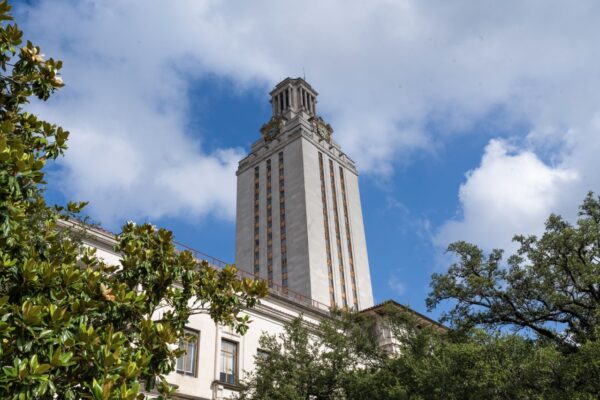AUSTIN, Texas — One of the world’s largest concentrations of hydrogen production, pipelines and users is based in Texas and southwest Louisiana. The Department of Energy’s new HyVelocity Hydrogen Hub will leverage these assets to deliver the benefits of clean hydrogen and good-paying jobs to local communities. The regional energy hub is part of the DOE’s $7 billion Bipartisan Infrastructure Law investment, with The University of Texas at Austin as the leading academic organization and a founding member.
“The University of Texas at Austin has a long history of collaborating with industry to address the world’s most pressing energy challenges, and this new Hydrogen Hub will enable a strong partnership to have a big impact on both Texas and society,” said President Jay Hartzell. “This impact will materialize through accelerated innovation, greater energy security, improved efficiency and profitability of the energy industry, reduced greenhouse gas emissions, greater access to energy, and a stronger workforce. Texas will lead the emerging global hydrogen economy, much as it has done across the entire spectrum of energy, and UT will contribute our talent, research and expertise to the effort.”
UT researchers will support community benefits activities, including leading the region’s clean hydrogen workforce development efforts. Researchers will also conduct life-cycle and techno-economic analyses for the projects. For example, they will provide the analyses required for meeting emissions criteria, clean hydrogen standards, and cost benchmarks, and will report these data to the DOE.
“By advancing the global clean hydrogen market, we will help to decarbonize multiple sectors of the economy and support equitable economic development across the region,” said Brian Korgel, the Rashid Engineering Regents Chair Professor in the McKetta Department of Chemical Engineering and the director of the UT Energy Institute. “We are proud to be a founding member of the HyVelocity Hub, and we will leverage this federal investment to accelerate the clean hydrogen ecosystem in Texas, southwest Louisiana and along the U.S. Gulf Coast.”
With more than 1,000 miles of dedicated hydrogen pipelines, 48 hydrogen production plants and dozens of hydrogen end-use applications, the Gulf Coast is already the heart of hydrogen infrastructure and use in America. HyVelocity will build on the region’s diverse array of energy resources, including hydrogen production facilities and pipelines, renewable energy, a large base of industrial energy consumers, and a skilled workforce.
The HyVelocity Hub is primed to deliver jobs and economic benefits to the most vulnerable communities in the Gulf Coast, while striving to enhance labor standards, improve local air quality, and ensure that disadvantaged communities receive at least 40% of the clean energy benefits. The HyVelocity Hub will continue to prioritize close collaboration with community and labor organizations.
In addition to UT, key participants in HyVelocity include GTI Energy, the Center for Houston’s Future, Houston Advanced Research Center, and seven core industry participants: AES Corporation, Air Liquide, Chevron, ExxonMobil, Mitsubishi Power Americas, Orsted, and Sempra Infrastructure. HyVelocity also has more than 90 supporting partners from industry, academia, community engagement and labor organizations, nonprofits, and state and local government.




